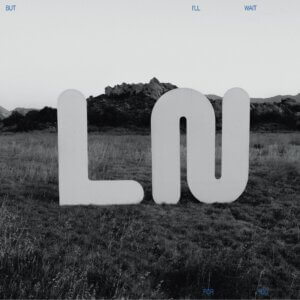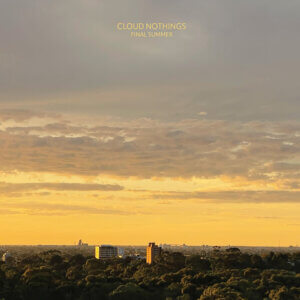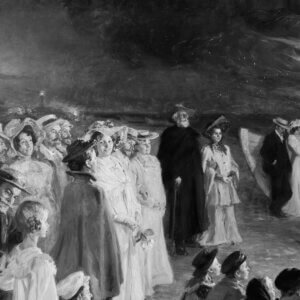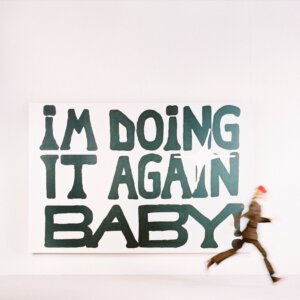Our interview with Matt Bennett

Los Angeles-based singer-songwriter/musician Matt Bennett’s performance credits include that of actor on the hit Nickelodeon TV series Victorious (Ariana Grande’s launch pad to fame), a guest spot on The Big Bang Theory as Howard Wolowitz’s half-brother Josh, and film roles in indie cult fave Me and Earl and the Dying Girl, The Virginity Hit (Bennett’s mostly improvised star turn), and the tense and chilling remake of The Stanford Prison Experiment. But what has always driven Bennett, besides acting, is listening to, creating, and playing music.
His upcoming indie rock/indie pop concept album Terminal Cases, which was inspired by the movies of the late Robin Williams, is slated for a June 10th release via Fanatic Records.
On Terminal Cases, Bennett merges his twin performance-based passions for film and music, addressing the main topics of growing up and divorce, which are running themes in many of Robin Williams’ movies – and which are issues that hit home for Bennett. His parents divorced while he was planning his album and (re)watching Williams’ cinematic output. Bennett was also affected by the abrupt cancellation of Victorious and needed a new creative project to focus on.
Bennett took inspiration not only from Robin Williams, but from Lou Reed’s album Berlin, which he had long been captivated by, especially the song “The Kids”. Just when everything was falling into place for Bennett’s musical project, he learned of Williams’ sudden passing. He decided to hold off on releasing Terminal Cases out of respect for Williams for over a year, but he also felt the pressing desire for his music to see the light of day. Working on and completing Terminal Cases was a therapeutic process for Bennett and he is now ready to introduce his album to the world.
Northern Transmissions: Hello Matt!! It’s so rad to have this chance to touch base with you about your music career, newly released single “Fisher King”, and upcoming rousing and perceptive album Terminal Cases. Before we dig into all of that, what are you up to at this very moment? Are you chill or hyped up right now?
Matt Bennett: Haha, hello Jen! This is rad for me as well. I’m currently in a half-ukulele-store, half-coffee-shop – and I’m chill and hyped right now. We just had our 4 year anniversary show for This Show Is Your Show, the show I’ve co-hosted with fellow actor/comedian Moses Storm since 2012. The line-up was insane: John Mulaney, Nick Kroll, Pete Holmes, Todd Glass, and yours truly on bass guitar. We’ve been trying to incorporate a live-music angle on the show so we had my friend’s band, Johnny Madrid, play between acts and I subbed in on bass. And the release process for the album is moving along, so all good things!
NT: Most of the public knows you as the funny, guitar-strumming, heartfelt-to-silly singing character Robbie from the Nickelodeon TV series Victorious that targeted the tween and early teen set. Even though I’m waaay past the teen years, I used to tune into Nick when I came back from work (and even on the weekend!), so I’m well-versed in all-things Victorious, Big Time Rush, and iCarly. For those who identify you as “Robbie”, what are the main traits that differentiate you from that fictional character?
MB: Ooh cool, how am I different from Robbie? I like that, usually people ask how I am similar to him (The answer to that: We’re tender- hearted guys with a penchant for strumming the guitar and falling in love with girls out of our league.).
When we started Victorious the characters were less fleshed out, and as we progressed the writers learned our strengths and weaknesses and would write to those. Robbie really got to evolve with me over the duration of the show and vice versa. By the end we weren’t too dissimilar. I guess my current difference would be four years of life experience and a new pair of glasses.
NT: Lyrics-wise, you go deep and vulnerable on Terminal Cases, something that maybe fans of your acting repertoire aren’t expecting. What do you hope they, and everyone else who listens to your album, will take away from your insightful thoughts?
MB: Precisely! After Victorious ended I wanted to create something no one was expecting or had heard from me previously. Everybody knows me as a light-hearted guy and I wanted to prove (to everyone AND to myself) that I had more to offer. Real human thoughts. I was dealing with the loss of my dream job and some major changes in my family; my parents divorced a couple months after the show got cancelled. I figured an album would be a proper way to channel that negativity into something creative. I hope the album offers a little more insight into my head and into my life than has previously been on the table.
The other thing I wanted to accomplish with the album besides getting a different side of myself across to the public was to experiment with creating narrative through songwriting. Some of my favorite albums are rock operas or albums that follow a narrative thread. Lou Reed’s masterpiece Berlin stands out particularly as a favorite, and I used its song structure as a template for this album. I love the way Berlin has a clear wave form to it; it takes you on a journey. I hope I was able to capture even a piece of its genius.
NT: You meld the film realm with the music field on Terminal Cases, something that off-hand I don’t recall any other artist’s doing across a whole album. Had you ever composed a song that was a stylistic fusion of music and film before you worked on your forthcoming album?
MB: Perfect! That’s what I was hoping for. I’m really into sound and vision collages (TV Carnage, Negativland) that take preexisting/overlooked moments captured on film and remix them into a new creation. Sometimes that creation is beautiful, sometimes it’s hideous, but it’s always unique. In every huge movie you see retreads of the same old concepts. Spiderman and Batman’s origin story gets repackaged every couple of years. Every video game is a retread of its former iteration. Everything is a sequel. And in music, the biggest hits of the year all follow a similar repetitive format, or blatantly steal riffs from older songs. Most successful pop songs also sample an annoying horn riff, but we can talk about that in a different interview. If the biggest movies of recent years can be retreads of comic books, and the most popular music can be sample-driven, why couldn’t a rock album take movie dialogue and meld it with music to create a brand new product? That’s my thesis and I’m sticking to it!
I think my earliest experiment with this concept would have been on my song “I Think You’re Swell,” which is a love song in the form of a laundry list of pop culture references.
NT: Stirring lead single “Fisher King” starts off in subdued singer-songwriter mode, but then breaks wide open with an indie rock storm of distorted guitar jags and thundering drums where you proclaiming vehemently “They say the worst thing in life / is being with people / who make you feel alone / …You reap what you sow.” Can you go into the backstory of how this song came to be?
MB: The line you picked out is a cool Easter egg; it’s actually not from The Fisher King, but from World’s Greatest Dad, a really great movie that I couldn’t figure out how to fully incorporate into the album’s structure. I love that line. To be pretentious for a second, Jean Paul Sartre said “Hell is other people.” Dad (the father character) is stuck in a mental rut, trapped in his family dynamic and thinking of taking drastic measures to get out. “Is it OK, to miss her now Jack?” are the first lines of the album, but they’re the last lines of the movie The Fisher King. Their story is just ending while ours is beginning. Or have we already gone full circle? The track is fuzzy for a reason.
NT: Who collaborated with you instrumentally and production-wise on Terminal Cases?
MB: All of the guitar work was done by yours truly. We had creative mastermind/producer Jim Greer on drums and synth-y affairs. The legendary Angelo Moore of Fishbone fame plays sax on “Bicentennial” and “Doubt Fire”.
NT: What is it about Robin Williams that inspires you? I’m assuming you’ve been a fan of his even before conceiving Terminal Cases. While I’m not a super-fan of his, I do appreciate his zany, engaging, rapid-fire personality and I used to watch Mork & Mindy back in the day.
MB: One of my main intentions in making this album was to have Robin Williams hear it. Growing up I would watch my favorite actor’s entire filmography. I developed a fascination and admiration for the way Robin could play comedy and tragedy together. His role in Good Will Hunting couldn’t be acted by just anyone; it takes a real talent. And to have someone whose films walk that fine line so well, it opened up my mind to some really adult concepts at a very young age.
In watching his films at an older age, I noticed a couple of threads that flowed throughout his films: 1) there’s often a character named Jack, 2) his movies deal with aging; growing up, growing up too fast, or not wanting to grow up at all, and 3) divorce or strained marital bonds was a common theme. With those principles in mind I was able to craft the story that runs through my album.
NT: You based your lyrics on the various scenarios in Williams’ films. What was the word-smithing process like for you? Did having this type of source material to draw from make it easier or more difficult to shape your words and ideas?
MB: The lyrics took a surprisingly long time to gel. Maybe it was because it was my first album, but I couldn’t let certain things go. The material was right in front of me, but I labored over the right placement of the lyrics. I wanted to place them in ways where each line could stand out and remain poignant, but fit into a new context to paint a brand new picture. That was difficult.
NT: Which song on Terminal Cases speaks the most to you, lyrics-wise? What about sonically?
MB: Lyrically I’m fond of “Jumanji” and “Doubt Fire”. I think they’re the right blend of heartfelt and concise. Sonically I’m all about “Moscow” and “Bicentennial”. When I went to Jim Greer and said I wanted to experiment with hardcore punk and shoegaze and Japanese rock elements on those tracks he was so on board.
NT: Are you prepared to accept the “serious artist” tag that’s going to stick to you once your album is out?
MB: I would be thrilled and honored to receive such a title. In a perfect world, this album will create a bridge between TV actor me and “serious artist” me that doesn’t stray too far, but adds a lot of new elements to the Matt Bennett people already know. By making an album with a seemingly funny concept (an album of songs based on Robin Williams’ movies), but a serious approach, I hope I can raise some interesting questions; open a dialogue.
In the end I’m just happy I was able to craft something cool, see it to completion, and share that with you and anyone else who listens!
NT: When did you first pick up the guitar and sing? Are you self-taught? What kind of guitar(s) do you play?
MB: I’ve been playing guitar for over 10 years now. I’ve been in and out of guitar classes, but mostly stick to teaching myself. On this album you’ll hear a good old-fashioned Fender Stratocaster, a Martin acoustic, and a Gretsch hollow body.
NT: D’oh, you joker, you! I was trying to find out more about your musical history online and finally hit on your alias “Mott Bonnott” and checked you out on YouTube. So, “what defines your style”, for real?
MB: Ha! Nice! While style is truly a never-ending river, and I firmly believe you can’t define style, I’ll give it a go. My style is curiosity. I’m not happy unless I’m learning something. Complacency is a norm; I see people who never challenge themselves and then they just… die. Or live in a hole somewhere. I want to make stuff that challenges myself and my audience. It would have been easy to phone it in and put out a cute pop album, make a couple bucks, and then fade into obscurity. While I recognize there still is time for me to fade into obscurity, the void isn’t going to be taking me that easily.
NT: I guess SnapChat is where it’s at these days, since you announced the release of Terminal Cases on it (but I watched it on your YouTube channel instead – LOL). You mention that you started with the song “Jumanji” as a one-off, but then played it live and realized you had something that you wanted to develop. Where did you perform the song and what was the feedback from the audience?
MB: Jen, I’m with you. The executive producer of the album, Joshua Bloom, who is way cooler than me, encouraged me to give SnapChat a shot. At times it feels over my head, but once you get the hang of it, it may be the best social media platform. I have so many drafts on Twitter because I can’t get something perfectly right. And Tweets are eternal, so they have to be perfect. Snapchats are refreshingly fleeting.
I performed “Jumanji” at Meltdown Comics on Sunset Blvd, where I’ve been hosting a live show called This Show Is Your Show for the past four years. We do everything from sketch to stand-up to music. If I recall correctly, the response was positive. Positive enough to put it in my head that this album was a good idea. Hah.
NT: Besides Lou Reed, who are your musical inspirations?
MB: Well, I’d be amiss if I didn’t list the obvious classics first: Bob Dylan and Elvis Costello. I’m truly a 90’s kid at heart. And I love anything that hits me across the face. Some 90’s classics I’d include are: They Might Be Giants, Fountains of Wayne, The Smashing Pumpkins, and Cornelius. Bands/artists who directly influenced this album are: Lou Reed, My Bloody Valentine, Cornelius, and The Hold Steady.
NT: While Terminal Cases is your debut album, you did previously release an EP titled Warm Fuzzies, Vol. 1 in 2012. Is there any sonic/lyrics connection between that EP and your upcoming album?
MB: I re-listened to Warm Fuzzies a couple of days ago! There aren’t too many connections between the EP and Terminal Cases. I had been working on a second EP called A Monumental Good Thing with a friend of mine who moved to Nashville without telling me and took the raw files with him. Sonically that’s probably closer to Terminal Cases than Warm Fuzzies is. Hopefully those songs will see the light of day eventually.
NT: What else is fizzing in your brain these days? How is your gig with This Show Is Your Show at Meltdown Comics in L.A. going? Are you currently pursuing your acting career or is that on hold while you focus on your album release?
MB: This Show Is Your Show is still going strong! We’re in our fourth year of operation and continue to get better and better. Our last show’s line-up was insane: John Mulaney, Nick Kroll, Pete Holmes, Little Esther, and Todd Glass. That’s an A plus lineup.
I also recently shot a guest spot on the ABC show Fresh Off The Boat, and continue to write new songs. I have a concept for the next album, so I’ll be pouring a lot of energy into getting those songs right.
NT: Have you continued studying Japanese? Yes, I did pick up that info from your SnapChat vid! Do you have a need to speak that language or were/are you learning it just for fun?
MB: I am still studying Japanese! When Victorious ended I wanted to pick up a hobby I could put time into, but not complete in a couple days or weeks. I had wanted to learn Japanese for years and, with an abundance of time on my hands, decided to give it a go. It has been an incredibly fun and rewarding experience.
One of my big goals in learning Japanese is to appear in some crazy commercials. Tommy Lee Jones is currently one of the most famous people in Japan because he’s in ads for canned coffee. The ads are so colorful and completely eclipse the ‘randomness’ of American advertising by being just completely bonkers. Someone on YouTube biweekly collects the previous two weeks new commercials and uploads them to YouTube. Every video continues to fuels my love of Japan. Here’s the link: https://www.youtube.com/user/JPCMHD
NT: What is the experience like of getting slimed on Nickelodeon TV shows? How does it taste?
MB: I am pleased to announce I am still the reigning Slime King of Nickelodeon, having been slimed over 40 times. The first time I was slimed was on a short-lived game show called Brain Surge. It tasted like vanilla. Every subsequent time was on Figure It Out, where it tasted like plastic.
NT: Have you kept in touch with your former co-stars from Victorious? Any inside scoop you can give on their whereabouts and/or what they’re up to? I’ve watched the 1st season of Sex&Drugs&Rock&Roll (for Elizabeth Gillies) and caught some episodes of Twisted and the miniseries Tut (for Avan Jogia), but otherwise I’m not up to date.
MB: I’m still great friends with most of the Victorious gang. Liz Gillies is my day-to-day best friend; we’re constantly in touch with each other. She cracks me up. She is vastly underrated and is one of the funniest people I’ve ever met.
Avan had been gone for a while doing Tut, but now that he’s back we’ve been back in touch. Ariana’s Ariana; her life is like a moving train. But we all still find time to text and meet up often.
NT: On the album’s last track, “Garp (Terminal Cases)”, you declare “I’m not worried about tomorrow / An uncertain future is the best kind / I can mold it and shape it / and make it mine.” Are you speaking as the character or have you taken those words to heart?
MB: It’s a mantra. Lou Reed says on the last song on Berlin, “Sad Song”, “I’m gonna stop wasting my time.” I wanted to find something similar to that sentiment. Whether or not I always believe it, it’s the mental outlook I’d most LIKE to embody. As for who is speaking it in the song, “Garp” is primarily from the perspective of Jack, the son character.
interview by Jen Dan
Latest Reviews
Tracks
Related
Sorry, we couldn't find any posts. Please try a different search.
Advertisement
Looking for something new to listen to?
Sign up to our all-new newsletter for top-notch reviews, news, videos and playlists.




